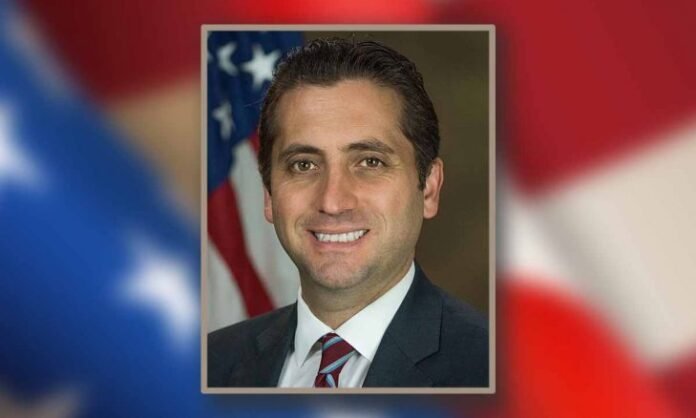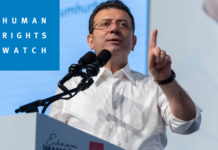A US federal judge has rejected a request by the Turkish government seeking the financial records of five individuals linked to the faith-based Gülen movement, citing concerns that the case is politically motivated and part of a broader campaign of transnational repression, according to court documents seen by Adem Yavuz Arslan of the TR724 news website.
In a 32-page ruling issued Friday, Judge John P. Cronan of the US District Court for the Southern District of New York denied Turkey’s petition for access to bank records from financial institutions including Bank of America and Wells Fargo.
Cronan called the request “overbroad” and “politically driven,” noting that the evidence presented was outdated, speculative and failed to demonstrate how the documents would serve any legitimate legal proceeding. He also found that the indictment submitted by Turkish authorities contained no verifiable evidence. Allegations of money laundering and insider trading were unsupported by documentation, further undermining the application’s legitimacy.
“The political context of this case is troubling,” Cronan wrote, pointing to a pattern of authoritarian governments misusing US discovery laws to investigate dissidents abroad.
The request was made under a US law known as Section 1782, which allows foreign governments to obtain evidence through American courts for use in overseas legal proceedings. While designed to facilitate legitimate judicial cooperation, the statute has been criticized for being exploited by regimes including Russia and China to harass political opponents.
Turkish President Recep Tayyip Erdoğan has been targeting followers of the Gülen movement, inspired by the late Muslim cleric Fethullah Gülen, since corruption investigations revealed in 2013 implicated then-prime minister Erdoğan as well as some of his family members and inner circle.
Dismissing the investigations as a Gülenist coup and a conspiracy against his government, Erdoğan began to target the movement’s members. He designated the movement as a terrorist organization in May 2016 and intensified the crackdown on it following an abortive putsch in July of the same year that he accused Gülen of masterminding. The movement strongly denies involvement in the coup attempt or any terrorist activity.
The people targeted by the Turkish government in the case before the New York court include Cevdet Türkyolu, a longtime associate of Gülen.
Turkish authorities cited a capital markets case opened in 2019 that alleges Türkyolu engaged in insider trading by selling shares of Bank Asya in 2014. The bank, affiliated with the Gülen movement, came under state control in 2015 and was formally shut down in 2016 following the failed coup.
But Cronan said the evidence submitted lacked credibility, was outdated and failed to link the requested documents to any clear legal proceeding in Turkey. He noted that Turkish authorities avoided referencing earlier terrorism or espionage charges previously directed at Türkyolu.
Earlier, in 2024, similar requests were denied by federal judges in Illinois and Ohio, who found Turkey’s filings to be either unsubstantiated or excessively broad. In one case, a US judge said Turkey’s demands appeared intended to identify and monitor individuals rather than to pursue a legitimate legal case.
The ruling underscores growing scrutiny in the United States of Turkey’s global campaign against its critics. In July 2024, 142 members of Congress wrote to President Joe Biden expressing concern over Ankara’s “transnational repression” and efforts to “silence dissent beyond its borders.”
Organizations such as Human Rights Watch and Freedom House have identified Turkey as a leading perpetrator of cross-border suppression of dissent, citing a pattern of politically motivated extradition requests, surveillance and pressure on host governments. The U.S. State Department and the United Nations have also raised concerns about Ankara’s misuse of international mechanisms to pursue critics abroad, warning that such practices undermine international legal norms and endanger the rights of exiled individuals.















